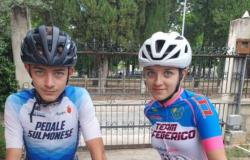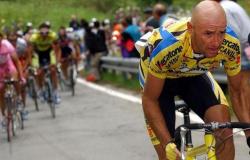Now that finally, partly due to the opening of the airport to new routes, partly due to the taste of the unknown, Reggio Calabria seems to have finally cautiously discovered the tourist vocation that it has been looking for for decades, it seems appropriate to educate many visitors beyond the narrow schemes of a tourist guide. In fact, those who, still remaining in the center, wanted to go beyond a visit to the Bronzes or to the chapel of the Cathedral which are prominently displayed in tourist brochures, they might in fact be very confused when they see some typical customs of homo reghinus which are still being studied by sociologists (those, to be clear, who studied primitive cultures going as far as Africa and the Amazon without imagining that without much trouble it was enough to travel a few kilometers to southern Italy), and which we try to summarize here, and not only out of mere anthropological curiosity, but also because not knowing them in depth could cause all ‘unaware tourist unpleasant inconveniences.
Habituation
Since I returned a few years ago from my stays in Florence, I gradually fell victim to that habit which is a bit of a form of self-defense and therefore, while at the beginning I was indignant, now it seems to me (for example) completely obvious that the roads around my house are occasionally gutted and then after a few weeks patched up as best they can, or potholes open up in newly asphalted roads and some kind soul signals them by putting boxes or beams in them to prevent some careless driver from ending up in them with the car, I therefore decided to travel the streets of Reggio using the gaze of a woman who was completely virgin to the Calabrian modus agendi.
I asked a friend who comes from the civilized world of the North to walk the city streets with me
I therefore asked a friend who comes from the civilized world of the North to walk the city streets with me. The woman seems to have a refined palate: to her it already seemed scandalous that several slabs were moving along the city street (but I managed to hide from him the fact that some people on Sundays consider it completely obvious to go fishing under the monument ofAthena Promachos of the via marina) and therefore I prepare for the worst. Let’s go back from Cathedral towards the central streets. I’ll try to quickly explain some local customs: to live well in Reggio it is very important to always look the other way. Homo rheginus always loves to do as he pleases without being disturbed and, above all, we must remember that here, as Prezzolini said, everyone’s things, especially state property, are nobody’s things, that is, the first to appropriate them. A bit like dogs who urinate out of curiosity and establish a sense of possession: here now only the elderly are left pissing in the street, but objects are replacing urine. She smiles, she thinks she’s joking: “These things don’t even happen in African villages anymore” she tells me. She believes. We then go up from the central church of the Crucifix, among the last villas of the Reggio bourgeoisie which is fleeing.
Waste
“Certain – tells me – that here you have a truly exceptional waste disposal service. Here, for example, they wouldn’t have taken those bins and all those platforms in the street. We should have brought them to the ecological island.” But in fact I explain to her that those are not to be considered waste. The owners simply, as I explained before, use the sidewalk as their personal warehouse. And in fact you just have to get closer to see that the platforms are well chained to a pole. “Not everything you see is rubbish. That’s garbage” and I point out a landfill that has formed along the slope towards the gate of the Industrial Institute, near where someone keeps a mound of sand. Among the things on the sidewalk you have to know how to distinguish between what you can take and what an owner has, and it takes a certain life experience. If you touch the wrong things, the risk is really bad here. For example, going a little further we happen to see some boxes on the side of the road. “Aren’t you going to tell me that the owner wants to keep this too?”. “Not keeping them. But this is a typically Reggio custom. If you find chairs, or boxes, or wooden planks on the side of the road you can’t take them. It means that someone has taken over that piece of road either because he doesn’t want you to park in front of him or because he is reserving the parking space for others. Now you don’t see anyone here but if you touch them as soon as you find them in front of you you really risk a dangerous argument.”
I see that my companion’s face has darkened. “But isn’t the road for everyone? ask me. “But precisely because it belongs to everyone – I answer her – in the end it doesn’t belong to anyone, and the first one who gets hold of it feels like the owner.” She understands little, but something now seems to cheer her up. “Look – tells me – there are fruit boxes in the middle of the street. And then they say that here in the South we are not generous. In this heat we needed it.” “But they don’t give it away. She is just on display. It’s the shopkeeper who first took over the entire sidewalk and then, since no one told him anything, now he sees where he can get and is spreading out onto the asphalt”. She looks at me bewildered. “Of course you people from Reggio are really strange” tells me.
“It’s human nature – I answer – When there are no rules, everyone gets as far as they can go” “What would it be like if there are no rules?” “Do you think you’re in the North? Here you can come as if you were in an African village: to explore. But then we return to the civilized world.” Bismarck’s words to Giolitti come to mind as he began the Libyan adventure and asked him what need there was to go and look for colonies in Africa when Africa already had it in the South. Two centuries have passed since then, perhaps we have become richer, but the culture has not changed. And I believe, precisely, that the problem is this: overcoming Rome believing that we are still in Europe while, de facto, we have overcome not a geographical dimension but a cultural dimension. What a high-ranking Neapolitan family once said, half horrified and fearful, to Norman Douglas who at the beginning of the twentieth century intended to continue his journey south: “But are you sure? That is still unexplored land.” The one that in old maps was indicated with the writing hic sunt leones.
Municipal police
However, you inquired whether, as in every municipality of the Italian Republic, also in that of Reggio Calabria there is a municipal police force capable of ensuring that public property is accessible to citizens and, from information acquired, it would seem so even if during our walk we didn’t see a single one around. In fact, it seems that they are busy with completely different matters. It seems that, to rebalance the miserable municipal coffers, they are sent to harass those tourists who dare to park in the historic center where steps have been taken, in view of the summer season, to double the parking prices without caring about alternating the blue spaces with the white lines as required the law. When perhaps with a few fines in the right places you could achieve much more and with less unfair means. And then we are (not) surprised if in terms of quality of life we find ourselves in last place.
Continue reading on StrettoWeb





